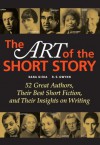Currently reading
The Good Lord Bird

Written by: James McBride, Copyrighted in 2013
Published By: Riverhead Books, (Hardback)
“I was born a colored man and don’t you forget it. But I lived as a colored woman for seventeen years.”
The Good Lord Bird is written in three parts Free Deeds (Kansas), Slave Deeds (Missouri), and Legend (Virginia).
Henry was a slave who along with his father (Pa) belonged to the owner (Dutch Henry Sherman) of Dutch Henry’s Tavern, in southern Kansas. Henry’s father worked as a barber at the tavern. An old man took the barber chair who Henry describes as “a stooped, skinny feller, fresh off the prairie, smelling like buffalo dung, with a nervous twitch in his jaw and a chin full of ragged whiskers.” The old man talked to Henry’s Pa about the Bible which was Pa’s favorite subject since he thought preaching the Gospel was his main job. Soon the subject of slavery came up and the old man made it clear he stood against slavery. The old man thought Henry was a girl, him having curly hair and being clothed in a potato sack. Pa tried to tell him, “Massa, my Henry ain’t a …,” when the old man interrupted him. That’s how Henry became Henrietta. Dutch Henry did not like the way this conversation was going and soon became aware that the old man who had identified himself as Shubel Isaac was in fact John Brown, the abolitionist. A shootout ensued and Henry’s Pa was killed. John Brown rode off with Henry.
Henry considered himself kidnapped by the old man and his thoughts were geared to getting back to the tavern, ASAP. Plus, he had not forgotten the old man had gotten his Pa killed. The old man talked to Henry as if he should be happy to be free. He handed Henry his good luck charm which Henry did not know what it was but assume he had be handed food took a bite out of the small onion. That when Henry/Henrietta got the nick name Onion. They soon caught up with the old man’s army (about fifteen (15) men) which consisted of mostly of his sons. He introduced Onion as a girl and Henry did not speak up otherwise. Onion was put under the care of Fred who was considered slow minded. Fred soon found out the Onion was not a girl, but did not tell.
Henry has many adventures, comparable to a Tom Sawyer or Huck Finn; during his time with the old man in Kansas, but soon finds himself in Pikesville, Missouri. In Pikesville he meets Pie a mulatto prostitute at the Pikesville Hotel. Henry falls for Pie and is ready to take off the nice dress the old man had given him, but, he kept up the charade and remained a girl. The time span from leaving the old man in Kansas until he sees him again in Pikesville is about two (2) years. However, McBride covers this time in six short chapters.
The last part of the story is titled Virginia; however, the old man and Henry do quite a bit of traveling during the next sixteen (16) chapters. They meet Harriett Tubman in Canada and Frederick Douglas in New York. We all know the story ends in Harpers Ferry. Harpers Ferry was then part of the state of Virginia. There is historical evidence that John Brown did actually meet with Tubman and Douglas, though we know Henry was not with him.
The story was humorous with Henry escaping trouble many times. Henry had one time to be responsible and missed this when he failed to give John Brown and important message concerning a password and response. This off course may have changed history. I noted that while Henry says he “lived as a colored woman for seventeen years,” the story only covers him from age ten (10) to fourteen (14).
I recommend this book to anyone interested in John Brown or a good story. The book was well written and the author received the 2013 National Book Award for fiction.
 3
3










